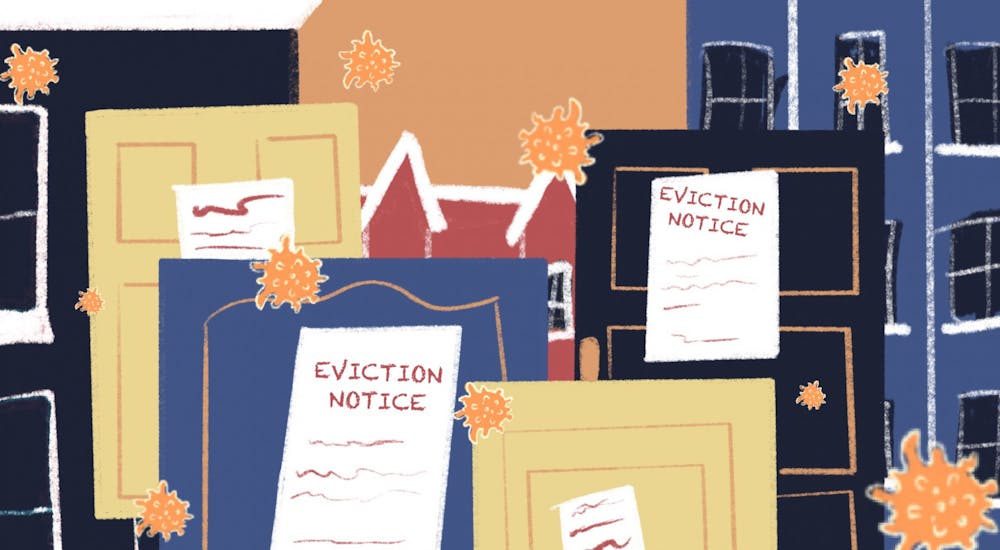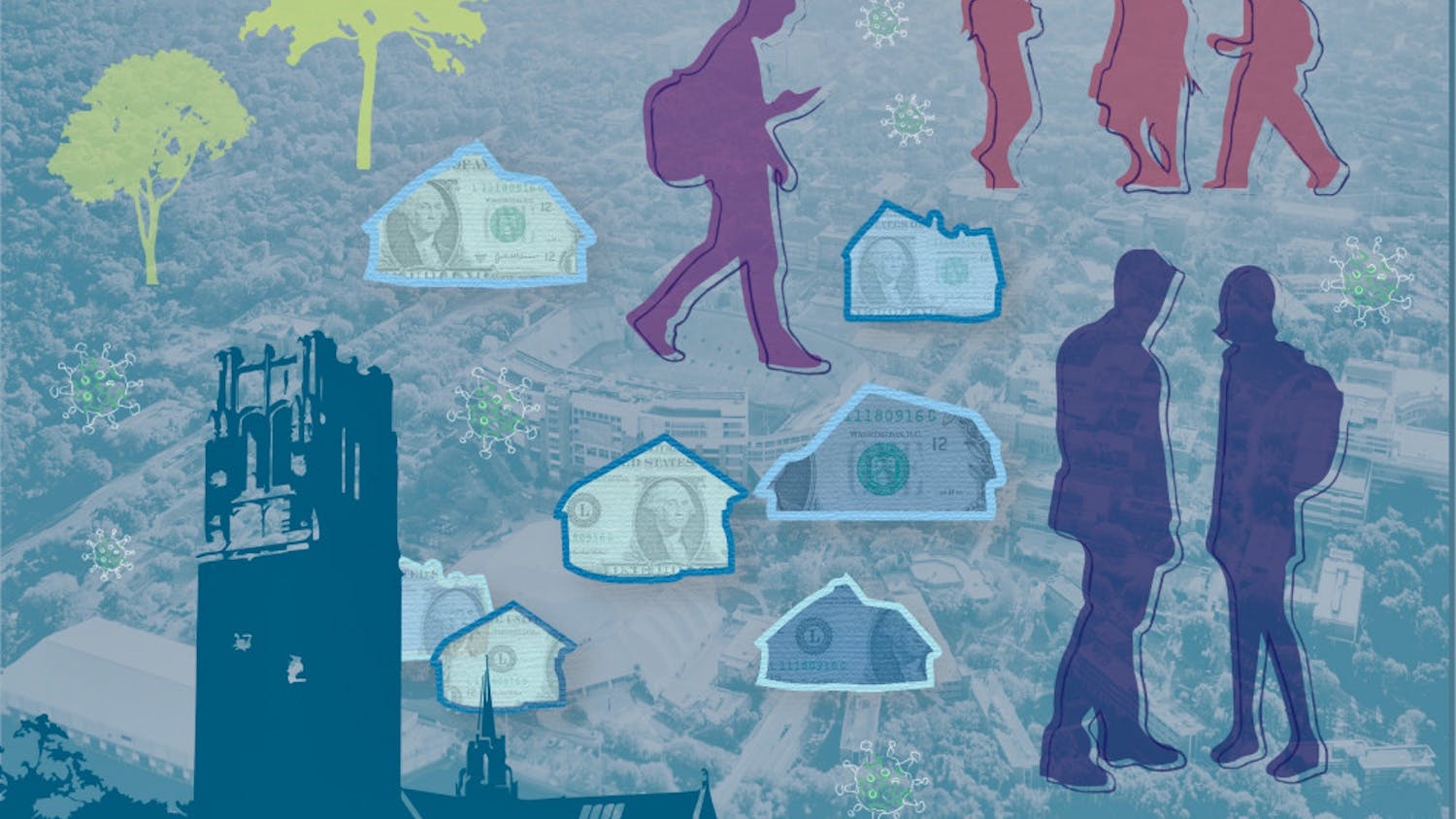Lacey Korver, a 28-year-old artist and delivery driver, was forced to leave her home Oct. 31.
When she lost her job as a waitress at Carrabba's Italian Grill in March because of the COVID-19 pandemic, she moved to a month-to-month lease agreement instead of renewing her lease. But she still couldn’t afford rent.
The CDC eviction moratorium, introduced in September, is a nationwide order designed to protect people facing financial hardship –– such as Korver –– from being forced to leave their homes during the pandemic. It prevents landlords from removing tenants for non-payment lease violations regarding all types of housing and residential rentals.
Originally scheduled to expire on Jan. 1, the CDC extended the moratorium until Jan. 31. Then President Joe Biden extended it through March after his inauguration Wednesday. Once the moratorium expires, many more people may face eviction, Glorian Maziarka, contract staff attorney for Three Rivers Legal Services, said.
But the moratorium came too late for Korver, who first started receiving eviction notices in June before the moratorium was in effect.
There have been 736 eviction actions filed between March 15 and Jan. 17 in Alachua County, according to the Eviction Lab, and about 68% of those eviction cases have been filed with the CDC eviction moratorium in place. In 2016, the county saw a total 733 eviction cases.
Maziarka said there is a backup of eviction cases filed because courts have been issuing stays on the evictions, which freezes the cases as judges wait for the moratorium to expire.
“With the CDC moratorium, what I've found really interesting is that a lot of people still don't know what that is even,” Maziarka said. “The landlords, of course, are not telling the tenants.”
Some landlords have found loopholes to get around the moratorium, she said. The moratorium only protects tenants from evictions actions of non-payments of rent. Landlords have attempted to file eviction actions under non-compliance, saying tenants violated their lease.
Tenants who pay their rent month to month may also find themselves at risk for eviction. For month-to-month renters, landlords only need to give 15-day notices to file the eviction as an expiration of lease eviction, Maziarka said.
“The more tenants know about the CDC moratorium, the better, because that gives them more time to catch up on their rent payments or to get rental assistance,” Maziarka said.
Korver contacted Three Rivers in June and was able to get free legal advice. However, she was unable to use the moratorium.
“There’s a loophole in the moratorium that because you have a month-to-month lease, you're not protected under this particular moratorium,” Korver said.
The moratorium helps tenants get funding to pay their housing rent or mortgage and ensures they do not get kicked out of their homes. Due to the COVID-19 pandemic lockdowns, quarantines, job loss and other financial hardships, people who are having trouble paying for housing are protected.
The moratorium covers anyone facing a financial hardship, regardless of whether it is due to COVID-19. A renter must sign a declaration of such hardship and give it to their landlord to be protected, said Sarai Cabrera, director of division of social services in the county .
However, landlords still must respond to banks to pay mortgages or else they can be liable and forced to foreclose.
Florida's unemployment rate was at 7.6% in September when the moratorium was put into effect, according to the Florida Department of Economic Opportunity. The county’s unemployment rate was 4% in September, but raised to 4.7% by November, according to FRED economic data.
While the moratorium only protects tenants, Cabrera said, other resources are available for landlords whose mortgages are federally protected.
About $25 billion of the $900 billion COVID-19 relief package passed in Congress on Dec. 21 will go to rental assistance. The package also extends the deadline for renters to access emergency rental assistance provided under the Coronavirus Relief Fund.
The county will receive funding based on its population size, Cabrera said.
“We are encouraging people to take advantage of the moratorium and seek alternative housing if they need to so they're not caught up at the last minute trying to find a place to go,” Maziarka said.
To Maziarka, It’s important to know the moratorium doesn’t excuse people from not paying rent. Rent is still owed.
Now, Korver lives in a different apartment complex while continuing to work for Shipt and Doordash. While some days are still a struggle, things are better, she said.
“I'm really in a good place now. But, it was hard to get here,” Korver said. “Without Shipt, I would have been homeless.”
Contact Michelle Holder at mholder@alligator.org. Follow her on Twitter @michellecholder.

Michelle Holder is a second-year journalism student at UF minoring in entrepreneurship and a Metro reporter at The Alligator. She is from Ponte Vedra Beach, Florida. In her free time she enjoys going to coffee shops and reading.






